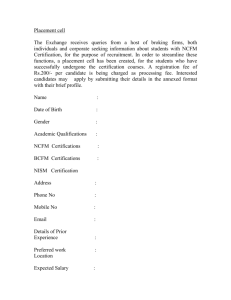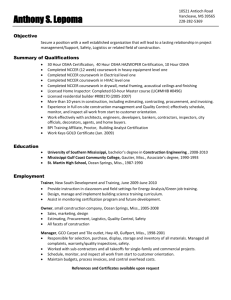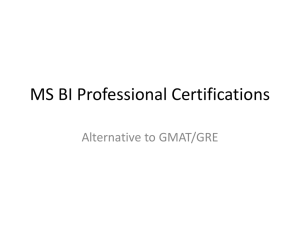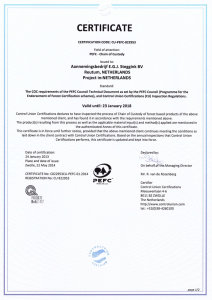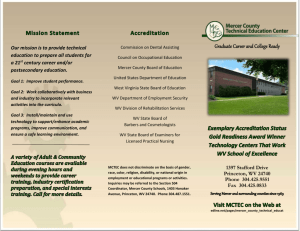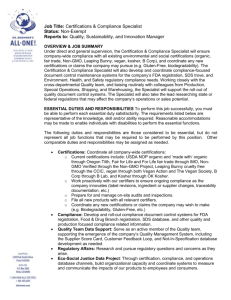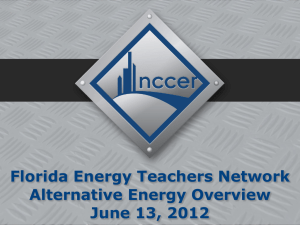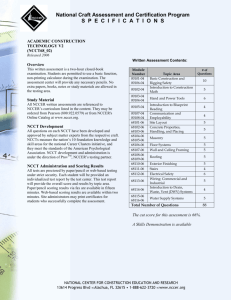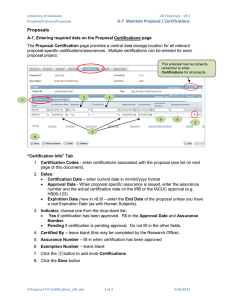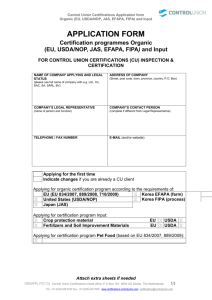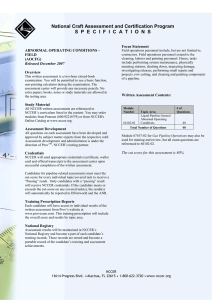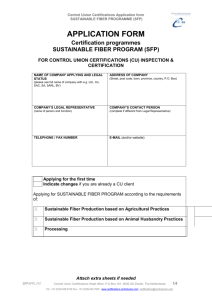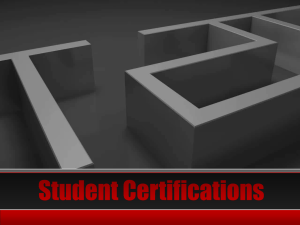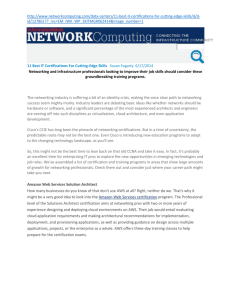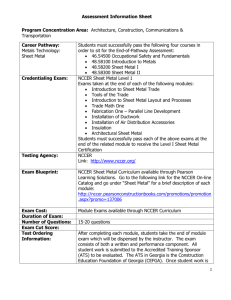EnergyEducationForGreenAcademies
advertisement
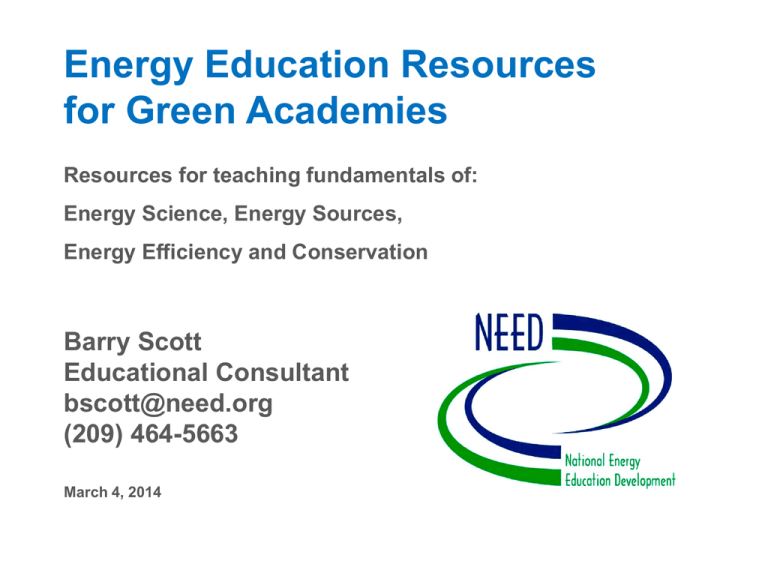
Energy Education Resources for Green Academies Resources for teaching fundamentals of: Energy Science, Energy Sources, Energy Efficiency and Conservation Barry Scott Educational Consultant bscott@need.org (209) 464-5663 March 4, 2014 Signature NEED Programs: • • • • • • • • • • • ConocoPhillips EIA Energy Kids FPL Solar Stations Hawaii Energy National Fuel Energy Detectives New Orleans Solar Schools Initative Pacific Gas & Electric PECO Energizing Education Program Phillips 66 TXU Energy Solar Academy Walmart Solar Schools About the NEED Project: • National Non-profit Organization founded 1979 • Active in all 50 states, 4 territories, and abroad • Teacher network, peer reviewed • K-12 material, free online curriculum, affordable kits • Our sponsors provide free workshops, kits, grants • We have a presence in the industry and public sector • Ongoing support via home office and state coordinators How does Energy fit into various subject matter areas? Integrating Energy Education: • History and SS: Energy is in every historic era. • Wars are largely fought and won over energy matters. • Economics are increasingly energy dependent. • Our food water mobility, communications… • Math and science connections are self-evident. • Environmental sciences, climate change? Energy. • Careers. More than ever, careers in and around energy. Where does Energy Education Fit in CTE Sectors? Industry Sectors: • Agriculture and Natural Resources ✔ • Arts, Media and Entertainment • Building Trades and Construction ✔ • Education, Child Development and Family Services • Energy and Utilities ✔ • Engineering and Design ✔ • Fashion and Interior Design ✔ • Finance and Business ✔ Industry Sectors: • Health Science and Medical Terminology • Hospitality, Tourism and Recreation ✔ • Information Technology • Manufacturing and Product Development ✔ • Marketing, Sales and Service ✔ • Public Services ✔ • Transportation ✔ Challenges and benefits of teaching more about energy? Implementing Energy Ed Challenges at the curricular level: • Energy topics dispersed across K-12 grades • Need for connection to real world applications • Need for connection to humans’ lives (see EEI) • Need to connect to the growing number of careers • General failure to prepare students for the workplace Energy education for energy sector careers only? • Energy is a topic ALL citizens should understand. The NEED Project Characteristics of effective energy curricula: • Unbiased, scientifically sound and research-based • Input from a broad cast of contributors • Integrated, project-based, hands-on • Connected to students’ lives • Provide opportunities for student leadership • Easily accessible, correlated to standards • Effectively distributed • Meaningfully supported The NEED Project Steps in an EE Program: • • • • • Science of Energy (forms and transformations) Sources of Energy (renewable and nonrenewable) Electricity and Magnetism Transportation (increasingly tied to the grid) Efficiency and Conservation When time allows: • Synthesis and Reinforcement • Service Learning • Recognition (celebration, leadership, outreach) CAISO California Independent System Operator http://www.caiso.com http://pge.need.org Industry Certification Recommendations- Pearson NCCER: • • • • • • • • National Center for Construction Education and Research Global : Bechtel, Pacific Gas and Electric Offers certification and testing across a variety of crafts Trainee’s certifications are portable, globally recognized Core curriculum treats universally important skills Comprehension level is appropriate to at-risk learners Combination of written exams and performance tests Titles are available in Spanish nccerpearsonconstructionbooks.com Industry Certification NCCER Core Curriculum modules: • • • • • • • Basic safety Construction math Hand tools Power tools Construction drawings Basic communication skills Basic employability skills nccerpearsonconstructionbooks.com Industry Certification: Additional NCCER titles and Certifications: • • • • • • • • • Alternative Energy Solar Photovoltaics Wind Energy Sustainable Construction Weatherization Power Generation certifications Distribution, Transmission, and Substation Management and Safety certifications Your Role in a Green Environment Energy Industry Certification Recommendations- CEWD: Center for Energy Workforce Development • Comprehensive and nationally recognized • Power generation, Transmission, & Distribution • Certifications are provided for module completion • Text based and online modules, written exams only • Most appropriate to dedicated post-secondary programs • Module One- History of the Power Industry (OK for HS) • Module Six- Career Exploration (online, useful for HS) • Module Seven – Hot Topics (online, useful for HS) www.cewd.org High School Resources Conclusions: • NEED Project materials for motivation and background, hands-on energy science, K through 12; • NCCER for a variety of certifications upon graduation, appropriate to high school or community college; • CEWD for in-depth dedicated energy programs; more appropriate for community college level. Used alone on in combination, all have value in EE! Upcoming workshops March 22, 2014 Wind Energy Workshop - Mojave, CA March 27, 20142014 Energy Education Workshop for Teachers Carson, CA April 3, 20142014 Energy Education Workshop for Teachers - Santa Maria, CA www.need.org High School Resources Thank you. Questions? Barry Scott bscott@need.org Mobile: 209.482.5663
